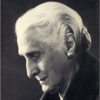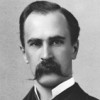Not for the first time she reflected that there were many drawbacks to being a swordswoman, not least of which was that men didn’t take you seriously until you’d actually killed them, by which time it didn’t really matter anyway.
Quotations about:
acceptance
Note not all quotations have been tagged, so Search may find additional quotes on this topic.
I believe that it is better even from the point of view of survival to fight and be conquered than to surrender without fighting.
George Orwell (1903-1950) English journalist, essayist, writer [pseud. of Eric Arthur Blair]
Essay (1942-08), “Looking Back on the Spanish War, ch. 6, Such, Such Were the Joys, essay 8 (1953)
(Source)
FAUSTUS: What doctrine call you this, Che sera, sera:
What will be, shall be? Divinity, adieu!Christopher "Kit" Marlowe (1564-1593) English dramatist and poet
The Tragicall History of the Life and Death of Doctor Faustus, Act 1, sc. 1 (sc. 1), l. 76ff (1594; 1604 “A” text)
(Source)
Giving up on Christian doctrine, since it teaches that all are sinful, and that sinfulness condemns one to death and damnation. (Faustus ignores the ideas of repentance and salvation.)
These lines show up as well in the 1616 "B" text (ll. 75-76).
This is one of the earliest mentions of the phrase che sarà sarà, which shows up first as a 16th Century English heraldic motto.
Besides, if a man is afraid of pain, he is afraid of something happening which will be part of the appointed order of things, and this is itself a sin; if he is bent on the pursuit of pleasure, he will not stop at acts of injustice, which again is manifestly sinful. No; when Nature herself makes no distinction — and if she did, she would not have brought pains and pleasures into existence side by side — it behooves those who would follow in her footsteps to be like-minded and exhibit the same indifference.
[ἔτι δὲ ὁ φοβούμενος τοὺς πόνους φοβηθήσεταί ποτε καὶ τῶν ἐσομένων τι ἐν τῷ κόσμῳ, τοῦτο δὲ ἤδη ἀσεβές: ὅ τε διώκων τὰς ἡδονὰς οὐκ ἀφέξεται τοῦ ἀδικεῖν, τοῦτο δὲ ἐναργῶς ἀσεβές: χρὴ δὲ πρὸς ἃ ἡ κοινὴ φύσις ἐπίσης ἔχει ῾οὐ γὰρ ἀμφότερα ἃν ἐποίει, εἰ μὴ πρὸς ἀμφότερα ἐπίσης εἶχἐ, πρὸς ταῦτα καὶ τοὺς τῇ φύσει βουλομένους ἕπεσθαι, ὁμογνώμονας ὄντας, ἐπίσης διακεῖσθαι.]
Marcus Aurelius (AD 121-180) Roman emperor (161-180), Stoic philosopher
Meditations [To Himself; Τὰ εἰς ἑαυτόν], Book 9, ch. 1 (9.1) (AD 161-180) [tr. Staniforth (1964)]
(Source)
(Source (Greek)). Alternate translations:Again, he that feareth pains and crosses in this world, feareth some of those things which some time or other must needs happen in the world. And that we have already showed to be impious. And he that pursueth after pleasures, will not spare, to compass his desires, to do that which is unjust, and that is manifestly impious. Now those things which unto nature are equally indifferent (for she had not created both, both pain and pleasure, if both had not been unto her equally indifferent): they that will live according to nature, must in those things (as being of the same mind and disposition that she is) be as equally indifferent.
[tr. Casaubon (1634)]To go on: He that's afraid of Pain, or Affliction; will be afraid of something that will always be in the World; but to be thus uneasie at the Appointments of Providence, is a failure in Reverence, and Respect. On the other hand; He that's violent in the pursuit of Pleasure, won't stick to turn Villain for the Purchase: And is not this plainly , an Ungracious, and an Ungodly Humour? To set the Matter Right, where the Allowance of God is equally clear; as it is with Regard to Prosperity, and Adversity: For had he not approved both these Conditions, He would never have made them: I say where the Good Liking of Heaven is equally clear, Ours ought to be so too: Because we ought to follow the Guidance of Nature, and the Sense of the Deity.
[tr. Collier (1701)]Besides, he who dreads pain, must sometimes dread that which must be a part of the order and beauty of the universe: this, now, is impious: and, then, he who pursues pleasures will not abstain from injury; and that is manifestly impious. But, in those things to which the common nature is indifferent, (for she had not made both, were she not indifferent to either); he who would follow nature, ought, in this too, to agree with her in his sentiments, and be indifferently dispos'd to either.
[tr. Hutcheson/Moor (1742)]Nay, he that is uneasy under affliction, is uneasy at what must necessarily exist in the world. This uneasiness, then, is a degree of impiety: and he who is too eager in his pursuit of pleasures, will not abstain from injustice to procure them. This is manifestly impious.
In short, as nature herself seems to view with indifference prosperity and adversity, (as she certainly does, or she would not produce them) so he who would follow nature as his guide, ought to do the same.
[tr. Graves (1792)]And further, he who is afraid of pain will sometimes also be afraid of some of the things which will happen in the world, and even this is impiety. And he who pursues pleasure will not abstain from injustice, and this is plainly impiety. Now with respect to the things towards which the universal nature is equally affected -- for it would not have made both, unless it was equally affected towards both -- towards these they who wish to follow nature should be of the same mind with it, and equally affected.
[tr. Long (1862)]Now, he that is afraid of pain will be afraid of something that will always be in the world; but this is a failure in reverence and respect. On the other hand, he that is violent in the pursuit of pleasure, will not hesitate to turn villain for the purchase. And is not this plainly an ungodly act? to set the matter right, where the allowance of God is equally clear, as it is with regard to prosperity and adversity (for had He not approved both of these conditions, He would never have made them both), I say, where the good liking of heaven is equally clear, ours ought to be so too, because we ought to follow the guidance of nature and the sense of the Deity.
[tr. Collier/Zimmern (1887)]Moreover, he who fears pain will some time fear that which will form part of the world-order; and therein he sins. And he who seeks after pleasures will not abstain from unjust doing; which is palpably an act of sin. Where Nature makes no difference -- and were she not indifferent, she would not bring both to pass -- those who would fain walk with Nature should conform their wills to like indifference.
[tr. Rendall (1898)]Again, he who dreads pain must sometimes dread a thing which will make part of the world order, and this is impious. And he who pursues pleasure will not abstain from injustice, and this is clear impiety. In those things to which the common nature is indifferent (for she had not made both, were she not indifferent to either), he who would follow Nature ought, in this also, to be of like mind with her, and shew the like indifference.
[tr. Hutcheson/Chrystal (1902)]Moreover he that dreads pain will some day be in dread of something that must be in the world. And there we have impiety at once. And he that hunts after pleasures will not hold his hand from injustice. And this is palpable impiety.
But those, who are of one mind with Nature and would walk in her ways, must hold a neutral attitude towards those things towards which the Universal Nature is neutral—for she would not be the Maker of both were she not neutral towards both.
[tr. Haines (Loeb) (1916)]He who fears pains will sometimes fear what is to come to pass in the Universe, and this is at once sinful, while he who pursues pleasures will not abstain from doing injustice, and this is plainly sinful. But those who wish to follow Nature, being like-minded with her, must be indifferent towards the things to which she is indifferent, for she would not create both were she not indifferent towards both.
[tr. Farquharson (1944)]And furthermore, one who is afraid of pain is sure to be afraid at times of things which come to pass in the universe, and that is already an impiety; and one that pursues pleasure will not abstain from injustice, and that is manifest impiety. But towards those things with regard to which universal nature is neutral (for she would not have created both opposites unless she was neutral with regard to both), it is necessary that those who wish to follow nature and be of one mind with her should also adopt a neutral attitude.
[tr. Hard (1997 ed.)]And moreover, to fear pain is to fear something that’s bound to happen, the world being what it is -- and that again is blasphemy. While if you pursue pleasure, you can hardly avoid wrongdoing -- which is manifestly blasphemous.
Some things nature is indifferent to; if it privileged one over the other it would hardly have created both. And if we want to follow nature, to be of one mind with it, we need to share its indifference.
[tr. Hays (2003)]Further, anyone who fears pain will also at times be afraid of some future event in the world, and that is immediate sin. And a man who pursues pleasure will not hold back from injustice -- an obvious sin. Those who wish to follow Nature and share her mind must themselves be indifferent to those pairs of opposites to which universal Nature is indifferent -- she would not create these opposites if she were not indifferent either way.
[tr. Hammond (2006)]And furthermore, one who is afraid of pain is sure to be afraid at times of things which come about in the universe, and that is already an impiety; and one who pursues pleasure will not abstain from injustice, and that is a manifest impiety. But towards those things with regard to which universal nature is neutral (for she would not have created both opposites unless she was neutral with regard to both), it is necessary that those who wish to follow nature and be of one mind with her should also adopt a neutral attitude.
[tr. Hard (2011 ed.)]
Having many cats is good. If you feel bad, you look at the cats and you feel better, because they know that everything is just the way it is. You don’t have to be nervous about anything. And they know it. They are saviors. The more cats you have, the longer you will live. If you have a hundred cats, you will live ten times longer than if you have ten. One day, this will be known and people will have thousands of cats. It’s truly ridiculous.
Charles Bukowski (1920-1994) German-American author, poet
Interview (1987-09) by Sean Penn, “Tough Guys Write Poetry,” Interview Magazine, Vol. 17, No. 19
(Source)
Collected in Bukowski, Sunlight Here I Am (2003) [ed. David Calonne].
A man my age is willing to accept almost anything. After the initial shock of astonishment that comes each morning when I wake up and discover that I’m still alive, I can face the day with an open mind.
What has died does not fall out of the universe; and if it remains here, it is also transformed here and resolved into its constituent parts, which are the elements of the universe and of yourself. And these elements themselves are transformed and utter no complaint.
[Ἔξω τοῦ κόσμου τὸ ἀποθανὸν οὐ πίπτει. εἰ ὧδε μένει καὶ μεταβάλλει ὧδε καὶ διαλύεται εἰς τὰ ἴδια, ἃ στοιχεῖά ἐστι τοῦ κόσμου καὶ σά. καὶ αὐτὰ δὲ μεταβάλλει καὶ οὐ γογγύζει.]
Marcus Aurelius (AD 121-180) Roman emperor (161-180), Stoic philosopher
Meditations [To Himself; Τὰ εἰς ἑαυτόν], Book 8, ch. 18 (8.18) (AD 161-180) [tr. Hard (1997 ed.)]
(Source)
(Source (Greek)). Alternate translations:Whatsoever dieth and falleth, however and wheresoever it die and fall, it cannot fall out of the world. here it have its abode and change, here also shall it have its dissolution into its proper elements. The same are the world's elements, and the elements of which thou dost consist. And they when they are changed, they murmur not; why shouldest thou?
[tr. Casaubon (1634), 8.16]Whatever drops out of Life, is catch't up somewhere, for the World loses nothing. Within this Circumference of Corporeity, all things have their several Formes, and Revolutions ; And here 'tis likewise that they return into Element, and first Principle ; Under which Notion those of the World and your own, are the very same; And all these last Changes are made without the least Repining : And why then should the same Matter that lyes quiet in an Element, Grumble in a Man?
[tr. Collier (1701)]What dies is not gone out of the verge of the universe. If that which is dissolved stays here, and is changed, it returns to those elements, of which the world and you too consist. These too are changed, and don’t murmur at it.
[tr. Hutcheson/Moor (1742)]Nothing that dies, is lost to the universe, or annihilated. But, if it remains here, it undergoes some change, and is resolved into its proper elements. Now the same elements which compose the rest of the world make a part of your person; yet those undergo many changes, and do not murmur or repine.
[tr. Graves (1792)]That which has died falls not out of the universe. If it stays here, it also changes here, and is dissolved into its proper parts, which are elements of the universe and of thyself. And these too change, and they murmur not.
[tr. Long (1862)]Whatever drops out of life is somewhere, for the world loses nothing. If it stays here, it also changes here, and is dissolved into its proper parts, which are elements of the universe and of yourself. And these two change and do not complain.
[tr. Collier/Zimmern (1887)]That which dies does not drop out of the universe. Here it bides, and here too it changes and is dispersed into its elements, the rudiments of the universe and of yourself. And they too change, and murmur not.
[tr. Rendall (1898)]That which dies falls not out of the Universe. If then it stays here, here too it suffers a change, and is resolved into those elements of which the world, and you too, consist. These also are changed, and murmur not.
[tr. Hutcheson/Chrystal (1902)]That which dies is not cast out of the Universe. As it remains here, it also suffers change here and is dissolved into its own constituents, which are the elements of the Universe and thy own. Yes, and they too suffer change and murmur not.
[tr. Haines (Loeb) (1916)]What dies does not fall outside the Universe. If it remains here and changes here, it is also resolved here into the eternal constituents, which are elements of the Universe and of yourself. And the elements themselves change and make no grievance of it.
[tr. Farquharson (1944)]That which dies does not drop out of the world. Here it remains; and here too, therefore, it changes and is resolved into its several particles; that is, into the elements which go to form the universe and yourself. They themselves likewise undergo change, and yet from them comes no complaint.
[tr. Staniforth (1964)]What dies doesn’t vanish. It stays here in the world, transformed, dissolved, as parts of the world, and of you. Which are transformed in turn -- without grumbling.
[tr. Hays (2003)]What dies does not pass out of the universe. If it remains here and is changed, then here too it is resolved into the everlasting constituents, which are the elements of the universe and of you yourself. These too change, and make no complaint of it.
[tr. Hammond (2006)]What has died does not fall out of the universe; and if it remains here, it is also transformed here and resolved into its own constituents, which are the elements of the universe and of yourself. And these elements themselves are transformed and utter no complaint.
[tr. Hard (2011 ed.)]
The boldest thinker may have his moments of languor and discouragement, when he feels as if he could willingly exchange faiths with the old beldame crossing herself at the cathedral-door, — nay, that, if he could drop all coherent thought, and lie in the flowery meadow with the brown-eyed solemnly unthinking cattle, looking up to the sky, and all their simple consciousness staining itself blue, then down to the grass, and life turning to a mere greenness, blended with confused scents of herbs, — no individual mind-movement such as men are teased with, but the great calm cattle-sense of all time and all places that know the milky smell of herds, — if he could be like these, he would be content to be driven home by the cow-boy, and share the grassy banquet of the king of ancient Babylon. Let us be very generous, then, in our judgment of those who leave the front ranks of thought for the company of the meek non-combatants who follow with the baggage and provisions. Age, illness, too much wear and tear, a half-formed paralysis, may bring any of us to this pass.
Taking it all together, keep always in view that human life is transitory and cheap: yesterday a drop of semen, tomorrow a buried corpse or ashes. So make your way through this brief moment in time in line with nature and let go of your life gladly, as an olive might fall when ripe, blessing the earth that bore it and grateful to the tree that gave it growth.
[τὸ γὰρ ὅλον, κατιδεῖν ἀεὶ τὰ ἀνθρώπινα ὡς ἐφήμερα καὶ εὐτελῆ καὶ ἐχθὲς μὲν μυξάριον, αὔριον δὲ τάριχος ἢ τέφρα. τὸ ἀκαριαῖον οὖν τοῦτο τοῦ χρόνου κατὰ φύσιν διελθεῖν καὶ ἵλεων καταλῦσαι, ὡς ἂν εἰ ἐλαία πέπειρος γενομένη ἔπιπτεν, εὐφημοῦσα τὴν ἐνεγκοῦσαν καὶ χάριν εἰδυῖα τῷ φύσαντι δένδρῳ.]
Marcus Aurelius (AD 121-180) Roman emperor (161-180), Stoic philosopher
Meditations [To Himself; Τὰ εἰς ἑαυτόν], Book 4, ch. 48 (4.48) (AD 161-180) [tr. Gill (2013)]
(Source)
(Source (Greek)). Alternate translations:For herein lieth all indeed, ever to look upon all worldly things, as things for their continuance, that are but for a day: and for their worth, most vile, and contemptible, as for example, What is man? That which but the other day when he was conceived was vile snivel; and within few days shall be either an embalmed carcass, or mere ashes. Thus must thou according to truth and nature, throughly consider how man's life is but for a very moment of time, and so depart meek and contented: even as if a ripe olive falling should praise the ground that bare her, and give thanks to the tree that begat her.
[tr. Casaubon (1634) 4.39]Mankind are poor Transitory Things! They are one Day in the Rudiments of Life, and almost the next, turn'd to Mummie, or Ashes. Your way is therefore to manage this Minute Wisely, and part with it chearfully; And like a ripe Nut when you drop out of the Husk, be sure to speak well of the Season, and make your Acknowledgments to the Tree that bore you.
[tr. Collier (1701)]And, in general, all human affairs are mean, and but for a day. What yesterday was a trifling embryo, to morrow shall be an embalmed carcase, or ashes. Pass this short moment of time according to nature, and depart contentedly; as the full ripe olive falls of its own accord, applauding the earth whence it sprung, and thankful to the tree that bore it.
[tr. Hutcheson/Moor (1742)]On the whole, then, a wise man will consider all human affairs as of a day's continuance, contemptible, and of little importance. Man himself is to-day in embryo, to-morrow a mummy or a handful of ashes.
Let us then employ properly this moment of time allotted us by fate, and leave the world contentedly; like a ripe olive dropping from its stalk, speaking well of the soil that produced it, and of the tree that bore it.
[tr. Graves (1792)]To conclude, always observe how ephemeral and worthless human things are, and what was yesterday a little mucus, to-morrow will be a mummy or ashes. Pass then through this little space of time conformably to nature, and end thy journey in content, as an olive falls off when it is ripe, blessing nature who produced it, and thanking the tree on which it grew.
[tr. Long (1862)]In short, mankind are poor, transitory things! They are one day in the rudiments of life, and almost the next turned to mummy or ashes. Your way is therefore to manage this minute in harmony with nature, and part with it cheerfully; and like a ripe olive when you droop, be sure to speak well of the mother that bare you.
[tr. Collier/Zimmern (1887)]In a word, look at all human things, behold how fleeting and how sorry -- but yesterday a mucus-clot, to-morrow dust or ashes! Spend your brief moment then according to nature's law, and serenely greet the journey's end, as an olive falls when it is ripe, blessing the branch that bears it and giving thanks to the tree which gave it life.
[tr. Rendall (1898)]In sum, look upon human things, and behold how short-lived and how vile they are; mucus yesterday, tomorrow ashes or pickled carrion. Spend, then, the fleeting remnant of your time in a spirit that accords with Nature, and depart contentedly. So the olive falls when it is grown ripe, blessing the ground from whence it sprung, and thankful to the tree that bore it.
[tr. Hutcheson/Chrystal (1902)]In a word, fail not to note how short-lived are all mortal things, and how paltry -- yesterday a little mucus, to-morrow a mummy or burnt ash. Pass then through this tiny span of time in accordance with Nature, and come to thy journey's end with a good grace, just as an olive falls when it is fully ripe, praising the earth that bare it and grateful to the tree that gave it growth.
[tr. Haines (Loeb) (1916)]This is the whole matter: see always how ephemeral and cheap are the things of man -- yesterday, a spot of albumen, to-morrow, ashes or a mummy. Therefore make your passage through this span of time in obedience to Nature and gladly lay down your life, as an olive, when ripe, might fall, blessing her who bare it and grateful to the tree which gave it life.
[tr. Farquharson (1944)]Observe, in short, how transient and trivial is all mortal life; yesterday a drop of semen, tomorrow a handful of spice or ashes. Spend, therefore, these fleeting moments on earth as Nature would have you spend them, and then go to your rest with good grace, as an olive falls in its season, with a blessing for the earth that bore it and a thanskgiving to the tree that gave it life.
[tr. Staniforth (1964)]In a word, never cease to observe how evanescent are all things human, and how worthless: today a drop of mucus, and tomorrow a mummy or a pile of ash. So make your eay through this brief moment of time as one who is obedient to nature, and accept your end with a cheerful heart, just as an olive might ripen and fall, blessing the earth that bare it and grateful to the tree that gave it growth.
[tr. Hard (1997 ed.); Hard (2011 ed.)]In general, consider always how ephemeral and cheap human affairs are; yesterday slime, tomorrow pickle or ashes. Go through this momentary time in accordance with nature, and come to an end cheerfully, like an olive that falls when it is ripe, speaking well of the earth who bore it you and giving thanks to the tree that begat you.
[tr. Hard? (1997 ed.)]In short, know this: Human lives are brief and trivial. Yesterday a blob of semen; tomorrow embalming fluid, ash.
To pass through this brief life as nature demands. To give it up without complaint.
Like an olive that ripens and falls.
Praising its mother, thanking the tree it grew on.
[tr. Hays (2003)]The conclusion of this? You should always look on human life as short and cheap. Yesterday sperm: tomorrow a mummy or ashes.
So one should pass through this tiny fragment of time in tune with nature, and leave it gladly, as an olive might fall when ripe, blessing the earth which bore it and grateful to the tree which gave it growth.
[tr. Hammond (2006)]So always keep in mind how short-lived and insignificant human things really are: yesterday a glob of mucous, tomorrow a corpse or a pile of ashes. So pass this brief amount of time in accordance with Nature and dissolve graciously, just as a ripe olive falls to the ground praising both he earth which gave it life and the tree which nourished it.
[tr. Needleman/Piazza (2008)]Mark how fleeting and paltry is the estate of man, yesterday in infancy, tomorrow embalmed or in ashes. For the hairsbreadth of time assigned to thee, live rationally, and part with life gracefully, as a ripe olive falls, blessing the season that bore it and thanking the tree that gave it life.
[ed. Yeroulanos (2016)]
CORPORAL: [trying to copy Lawrence’s snuffing a match with his fingers] Ow! It damn well ‘urts!
LAWRENCE: Certainly it hurts.
CORPORAL: Well what’s the trick then?
LAWRENCE: The trick, William Potter, is not minding if it hurts.
Robert Bolt (1924-1995) English dramatist
Lawrence of Arabia, Part 1, sc. 18 (1962) [with Michael Wilson]
(Source)
(Source (Video)). In the actual film, the last line is given, "not minding that it hurts."
Old age is like a plane flying through a storm. Once you’re aboard, there’s nothing you can do. You can’t stop the plane, you can’t stop the storm, you can’t stop time. So one might as well accept it calmly, wisely.
Golda Meir (1898-1978) Russian-American-Israeli politician, teacher; Prime Minister of Israel (1969-1974)
Interview (1972-11) by Oriana Fallaci, Ms. (1973-04)
(Source)
Answering to the charge that she is hard and inflexible, countering that she is very sensitive and feeling in most matters.
The full interview was reprinted in Fallaci, Interview with History, ch. 4 "Golda Meir" (1974) [tr. Shepley (1976)], but slightly rephrased:Old age is like an airplane flying in a storm. Once you're in it, there's nothing you can do. You can't stop a plane, you can't stop a storm, you can't stop time. So you might as well take it easy, with wisdom.
Was this re-edited (and in which instance?), or is it a matter of different translation? It's unclear in what language the interview was conducted, but the original edition of the book (Intervista con la Storia) was in Italian, Fallaci's native language, which gave the passage as follow:La vecchiaia é come un aereo che vola nella tempesta. Una volta che ci sei dentro, non puoi farci pid nulla. Non si ferma un aereo, non si ferma una tempesta, non si ferma il tempo. Quindi tanto vale pigliarsela calma, in saggezza.
He had never before been quite so acutely aware of the particular quality and function of November, its ripeness and its hushed sadness. The year proceeds not in a straight line through the seasons, but in a circle that brings the world and man back to the dimness and mystery in which both began, and out of which a new seed-time and a new generation are about to begin. Old men, thought Cadfael, believe in that new beginning, but experience only the ending. It may be that God is reminding me that I am approaching my November. Well, why regret it? November has beauty, has seen the harvest into the barns, even laid by next year’s seed. No need to fret about not being allowed to stay and sow it, someone else will do that. So go contentedly into the earth with the moist, gentle, skeletal leaves, worn to cobweb fragility, like the skins of very old men, that bruise and stain at the mere brushing of the breeze, and flower into brown blotches as the leaves into rotting gold. The colours of late autumn are the colours of the sunset: the farewell of the year and the farewell of the day. And of the life of man? Well, if it ends in a flourish of gold, that is no bad ending.
Ellis Peters (1913-1995) English writer, translator [pseud. of Edith Mary Pargeter, who also wrote under the names John Redfern, Jolyon Carr, Peter Benedict]
Brother Cadfael’s Penance, ch. 1 (1994)
(Source)
Questions are a burden to others
Answers a prison for oneselfGeorge Markstein (1926-1987) British journalist, author, screenwriter
The Prisoner, 01×01 “Arrival” (1967-09-29) [with David Tomblin]
(Source)
Sign in the Labour Exchange office of the Village.
ALCESTE: Some men I hate for being rogues; the others
I hate because they treat the rogues like brothers,
And, lacking a virtuous scorn for what is vile,
Receive the villain with a complaisant smile.
[Je hais tous les hommes:
Les uns, parce qu’ils sont méchants et malfaisants,
Et les autres, pour être aux méchants complaisants,
Et n’avoir pas pour eux ces haines vigoureuses
Que doit donner le vice aux âmes vertueuses.]Molière (1622-1673) French playwright, actor [stage name for Jean-Baptiste Poquelin]
Le Misanthrope, Act 1, sc. 1 (1666) [tr. Wilbur (1954)]
(Source)
(Source (French)). Alternate translations:I hate all men: some, because they are wicked and mischievous; others because they lend themselves to the wicked, and have not that healthy contempt with which vice ought to inspire all virtuous minds.
[tr. Van Laun (1878)]I hate all men -- some because they are wicked and mischievous, and others for being complaisant to -- the wicked, and not having that vigorous hatred for them which vice ought to excite in all virtuous minds.
[tr. Mathew (1890)]I hate all men: some because they are wicked and evil-doers; others because they fawn upon the wicked, and dare not show that vigorous hatred which virtuous souls should feel to vice.
[tr. Wormeley (1894)]I hate all men: some, because they are wicked and mischievous; others, because they are lenient towards the wicked, and have not that healthy contempt for them with which vice ought to inspire all honest souls.
[tr. Waller (1903)]I hate all men:
A part, because they’re wicked and do evil;
The rest, because they fawn upon the wicked,
And fail to feel for them that healthy hatred
Which vice should always rouse in virtuous hearts.
[tr. Page (1913)]I detest all men;
Some because they are wicked and do evil,
Others because they tolerate the wicked,
Refusing them the active, vigorous scorn
Which vice should stimulate in virtuous minds.
[tr. Bishop (1957)]I hate all men:
For some are wholly bad in thought and deed;
The others, seeing this, pay little heed;
For they are too indulgent and too nice
To share the hate that virtue has for vice.
[tr. Frame (1967)]
Happy the man, of mortals happiest he,
Whose quiet mind from vain desires is free;
Whom neither hopes deceive, nor fears torment,
But lives at peace, within himself content;
In thought, or act, accountable to none
But to himself, and to the gods alone.George Granville (1666-1735) English politician, poet, playwright [1st Baron Lansdowne]
“Epistle to Mrs. Higgons,” l. 79ff (1690)
(Source)
FOOL: He that has and a little tiny wit,
With hey, ho, the wind and the rain,
Must make content with his fortunes fit,
Though the rain it raineth every day.William Shakespeare (1564-1616) English dramatist and poet
King Lear, Act 3, sc. 2, l. 81ff (3.2.81-84) (1606)
(Source)
Never turn down the chance of an adventure, unless such chances are coming thick and fast, and maybe not even then.
Mignon McLaughlin (1913-1983) American journalist and author
The Second Neurotic’s Notebook, ch. 4 (1966)
(Source)
To understand the actual world as it is, not as we should wish it to be, is the beginning of wisdom.
Bertrand Russell (1872-1970) English mathematician and philosopher
“Censorship by Progressives,” New York American (1934-10-11)
(Source)
Selfishness must always be forgiven, you know, because there is no hope of a cure.
The way to achieve happiness is to have a high standard for yourself and a medium one for everyone else.
Marcelene Cox (1900-1998) American writer, columnist, aphorist
“Ask Any Woman” column, Ladies’ Home Journal (1954-08)
(Source)
Two conditions are essential to the realization of justice according to law. The law must have an authority supreme over the will of the individual, and such an authority can arise only from a background of social acquiescence, which gives it the voice of indefinitely greater numbers than those of its expositors. Thus, the law surpasses the deliverances of even the most exalted of its prophets; the momentum of its composite will alone makes it effective to coerce the individual and reconciles him to his subserviency. The pious traditionalism of the law has its roots in a sound conviction of this necessity; it must be content to lag behind the best inspiration of its time until it feels behind it the weight of such general acceptance as will give sanction to its pretension to unquestioned dictation.
Learned Hand (1872-1961) American jurist
“The Speech of Justice,” Harvard Law Review (1916-04)
(Source)
Collected in The Spirit of Liberty (1953).
One of the evils of democracy is you have to put up with the man you elect whether you want him or not.
Two persons will not be friends long if they are not inclined to pardon each otherʼs little failings.
[L’on ne peut aller loin dans l’amitié, si l’on n’est pas disposé à se pardonner les uns aux autres les petits défauts.]
Jean de La Bruyère (1645-1696) French essayist, moralist
The Characters [Les Caractères], ch. 5 “Of Society and Conversation [De la Société et de la Conversation],” § 62 (5.62) (1688) [tr. Van Laun (1885)]
(Source)
(Source (French)). Alternate translations:Two persons will not be friends a long time, if they can't forgive each other little failings.
[Bullord ed. (1696)]Two Persons will not be long Friends, if they can't forgive each other little Failings.
[Curll ed. (1713)]You will never go far in friendship unless you are ready to forgive each other's petty faults.
[tr. Stewart (1970)]
The only way to make sense out of change is to plunge into it, move with it, and join the dance.
Alan Watts (1915-1973) Anglo-American philosopher, writer
The Wisdom of Insecurity: A Message for an Age of Anxiety, ch. 3 (1951)
(Source)
MALCOLM: Nothing in his life
Became him like the leaving it. He died
As one that had been studied in his death
To throw away the dearest thing he owed
As ’twere a careless trifle.William Shakespeare (1564-1616) English dramatist and poet
Macbeth, Act 1, sc. 4, l. 8ff (1.4.8-12) (1606)
(Source)
Art is anything you can get away with.
Marshall McLuhan (1911-1980) Canadian philosopher, communication theorist, educator
The Medium is the Massage: An Inventory of Effects (1967) [with Quentin Fiore]
(Source)
More discussion of this quotation: Art Is Anything You Can Get Away With – Quote Investigator.
Such is the life of man, nor wholly blest,
Nor wholly wretched; on her votaries Fortune
now smiles, then frowns. Since our prosperity
Is thus unstable, is not an exemption
From grief the greatest pleasure life can yield?[τοιόσδε ϑνητῶν τῶν ταλαιπώρων βίος’
οὔτ᾽ εὐτυχεῖ τὸ πάμπαν οὔτε δυστυχεῖ,
εὐδαιμονεῖ δὲ καύϑις οὐκ εὐδαιμονεῖ.
τί δῆτ᾽ ἐν ὄλβω μὴ σαφεῖ βεβηκότες
οὐ ξῶμεν ὡς ἥδιστα μὴ λυπούμενοι;]Euripides (485?-406? BC) Greek tragic dramatist
Antiope [Αντιοπη], frag. 196 (TGF, Kannicht) (c. 410 BC) (Amphion?) [tr. Wodhall (1809)]
(Source)
(Source (Greek)). Alternate translation:Such is the life of wretched mortals;
a man is neither wholly fortunate nor unfortunate;
why then, on entering prosperity which may be insecure,
do we not live as pleasantly as possible, without distress?
[Source]Such it is, the life of miserable mortals:
neither wholly fortunate nor unfortunate.
He is prosperous and then he is not prosperous.
Why then, when we stand in uncertain happiness,
do we not live as pleasurably as possible, without distress.
[tr. Will (2015)]
Galla, deny; and render passion strong:
But, prudent Galla, don’t deny too long.[Galla, nega: satiatur amor nisi gaudia torquent:
sed noli nimium, Galla, negare diu.]Martial (AD c.39-c.103) Spanish Roman poet, satirist, epigrammatist [Marcus Valerius Martialis]
Epigrams [Epigrammata], Book 4, epigram 38 (4.38) (AD 89) [tr. Elphinston (1782), Book 12, ep. 195]
(Source)
(Source (Latin)). Alternate translations:Galla deny, be not too eas'ly gain'd,
For Love will glut with Joys too soon obtain'd.
[tr. Cotton (1686)]Galla, say "No:" love is soon sated, unless our pleasures are mixed with some pain;
but do not continue, Galla, to say "No" too long.
[tr. Bohn's Classical (1859)]Refuse me, Galla; love cloys if its pleasures torture not:
but refuse not, Galla, too long.
[tr. Ker (1919)]Galla, say "no" -- Tease love and you renew it.
But prithee, Galla, do not overdo it.
[tr. Pott & Wright (1921)]Say you won't Galla: For passion cloys
if its joys are not tormenting
But don't take too long in relenting!
[tr. Bovie (1970)]Galla, say no, for love, unless
It teases, cloys with happiness.
Don't take too long, though, to say yes.
[tr. Michie (1972)]Galla, say no. Love palIs, unless its joys are torture. But Galla, don't say no for too long.
[tr. Shackleton Bailey (1993)]A "No" can build love's piquancy,
But don't, too long, say "No" to me.
[tr. Ericsson (1995)]Galla, say no. Love is satiated unless pleasures torment.
But, Galla, do not say no for too long!
[tr. Williams (2004)]"No" is enticing; so is wooing slow.
But nothing works till you stop saying "No."
[tr. Wills (2007)]Galla, say no. Some torment makes love stronger.
But, Galla, don’t keep saying no much longer.
[tr. McLean (2014)]Galla, tell me "No": love stales unless its joys bring pain.
But, Galla, don't say "No" for very long.
[tr. Nisbet (2015)]Without a wait
or some hard trial,
love won’t amuse me.
So hesitate
(just for a while ...)
[tr. Juster (2016)]Galla, say No, for Love will cloy
Without some torments mixed with joy.
But, Galla, do not get me wrong --
Please don’t say No to me too long.
[tr. Barger]
Friendship is the gift that goes on giving and is a gift to both the person given to and to the giver as well. But to really make it work, it isn’t enough to give to another person. You also have to let them give to you.
Men are accomplices to that which leaves them indifferent.
George Steiner (1929-2020) Franco-American literary critic, philosopher, writer, educator
“A Kind of Survivor” (1965), Language and Silence: Essays 1958-1966 (1967)
(Source)
This is what the prophets discovered. History is a nightmare. There are more scandals, more acts of corruption, than are dreamed of in philosophy. It would be blasphemous to believe that what we witness is the end of God’s creation. It is an act of evil to accept the state of evil as either inevitable or final. Others may be satisfied with improvement, the prophets insist upon redemption. The way man acts is a disgrace, and it must not go on forever.
What is the new loyalty? It is, above all, conformity. It is the uncritical and unquestioning acceptance of America as it is — the political institutions, the social relationships, the economic practices. It rejects inquiry into the race question or socialized medicine, or public housing, or into the wisdom or validity of our foreign policy. It regards as particularly heinous any challenge to what is called “the system of private enterprise,” identifying that system with Americanism. It abandons evolution, repudiates the once popular concept of progress, and regards America as a finished product, perfect and complete.
The greatest danger that threatens us is neither heterodox thought nor orthodox thought, but the absence of thought.
Henry Steele Commager (1902-1998) American historian, writer, activist
Civil Liberties under Attack (1951)
(Source)
Nothing I accept about myself can be used against me to diminish me.
Audre Lorde (1934-1992) American writer, feminist, civil rights activist
“Eye to Eye: Black Women, Hatred, and Anger,” Sister Outsider: Essays and Speeches (1984)
(Source)
Truths that startled the generation in which they were first announced become in the next age the commonplaces of conversation; as the famous airs of operas which thrilled the first audiences come to be played on hand-organs in the streets.
The nationalist not only does not disapprove of atrocities committed by his own side, but he has a remarkable capacity for not even hearing about them. […] In nationalist thought there are facts which are both true and untrue, known and unknown. A known fact may be so unbearable that it is habitually pushed aside and not allowed to enter into logical processes, or on the other hand it may enter into every calculation and yet never be admitted as a fact, even in one’s own mind.
George Orwell (1903-1950) English journalist, essayist, writer [pseud. of Eric Arthur Blair]
“Notes on Nationalism” (May 1945)
(Source)
“So, Jeeves!”
“Yes, sir.”
“What do you mean. Yes, sir?”
“I was endeavouring to convey my appreciation of the fact that your position is in many respects somewhat difficult, sir. But I wonder if I might call your attention to an observation of the Emperor Marcus Aurelius. He said: ‘Does aught befall you? It is good. It is part of the destiny of the Universe ordained for you from the beginning. All that befalls you is part of the great web.'”
I breathed a bit stertorously.
“He said that, did he?”
“Yes, sir.”
“Well, you can tell him from me he’s an ass.”
P. G. Wodehouse (1881-1975) Anglo-American humorist, playwright and lyricist [Pelham Grenville Wodehouse]
The Mating Season, ch. 4 (1949)
(Source)
Adapted from Marcus Aurelius, Meditations, Book 4, #26 [tr. Rendall (1901)].
Wodehouse uses in "Ordeal by Golf" (1919) a similar sentiment from Meditations, Book 10, #5, to suggest Marcus Aurelius was a golfer.Imitate the spirit of Marcus Aurelius. "Whatever may befall thee," says that great man in his "Meditations," "it was preordained for thee from everlasting. Nothing happens to anybody which he is not fitted by nature to bear." I like to think that this noble thought came to him after he had sliced a couple of new balls into the woods, and that he jotted it down on the back of his score-card.
Moreover, if we look at the techniques of totalitarian government, it is obvious that the argument of “the lesser evil” — far from being raised only from the outside by those who do not belong to the ruling elite — is one of the mechanisms built into the machinery of terror and criminality. Acceptance of lesser evils is consciously used in conditioning the government officials as well
Life is a tragic mystery. We are pieced and driven by laws we only half understand. We find that the lesson we learn again and again is that of accepting heroic helplessness.
Florida Scott-Maxwell (1883-1979) American-British playwright, author, psychologist
The Measure of My Days (1968)
(Source)
His philosophy was a mixture of three famous schools — the Cynics, the Stoics and the Epicureans — and summed up all three of them in his famous phrase, “You can’t trust any bugger further than you can throw him, and there’s nothing you can do about it, so let’s have a drink.”
Therefore, when the young die I am reminded of a strong flame extinguished by a torrent; but when old men die it is as if a fire had gone out without the use of force and of its own accord, after the fuel had been consumed; and, just as apples when they are green are with difficulty plucked from the tree, but when ripe and mellow fall of themselves, so, with the young, death comes as a result of force, while with the old it is the result of ripeness. To me, indeed, the thought of this “ripeness” for death is so pleasant, that the nearer I approach death the more I feel like one who is in sight of land at last and is about to anchor in his home port after a long voyage.
[Itaque adulescentes mihi mori sic videntur, ut cum aquae multitudine flammae vis opprimitur, senes autem sic, ut cum sua sponte nulla adhibita vi consumptus ignis exstinguitur; et quasi poma ex arboribus, cruda si sunt, vix evelluntur, si matura et cocta, decidunt, sic vitam adulescentibus vis aufert, senibus maturitas; quae quidem mihi tam iucunda est, ut, quo propius ad mortem accedam, quasi terram videre videar aliquandoque in portum ex longa navigatione esse venturus.]
Marcus Tullius Cicero (106-43 BC) Roman orator, statesman, philosopher
De Senectute [Cato Maior; On Old Age], ch. 19 / sec. 71 (19.71) (44 BC) [tr. Falconer (1923)]
(Source)
(Source (Latin)). Alternate translations:And by that the adolescentes & yong men as me semyth dyen like as old men which quencheth a strong & a right grete fflame of fyre by castyng in of moche watir, and olde men dyen as a fyre which stynteth and wasteth itself or as a candel & the matche in a lampe of oyle consumith withoute doyng violence & withoute any force & strength. I make eftsonys anothir comparison of deth whiche comyth both to yong & olde men ffor as the appils & othir fruytes hangyng on the trees be by force plucked in the meanetyme whiles they be rawe & newe & when they be ripe & melowe by the heete of the sonne they fallen of with their free & playne will & so the deth takith awey by hir violente force the life of yong men and the ripnesse of olde age takith awey the life of olde men softely and withoute force. And this deth whiche comith by ripnesse of long age is so ioyfull and so agreable to me in so moche as I shall applye and come more nygh to it in a convenient season. The deth is also to me noon othirwise ioyfull or agreable than shuld be to me the deye londe if me thought that I shulde see it when I seyle in a ship or swymme in the see to the porte or havyn. And that it were likly that I shuld come to the porte or havyn aftir that I have sey∣led and vyaged long upon the see. That is to witt that deth which comith to the wise man aftir long age is like the porte or haven that men see from ferr in seylyng upon the see whiche doth grete ioye when men be upon the river into the haven warde and to have takyn their porte salve ffor the drede of the parelles and dangers of rokkes sandys and grete tempestys be than passid chaungid and turned in saftee and rest.
[tr. Worcester/Worcester/Scrope (1481)]Therefore, young men, in mine opinion, seem so to die as when a raging and violent flame of fire is quenched, with a great quantity or effusion of water; but old men die as if it were fire, which, lacking wood and cumbustible matter to nourish it, goeth out quietly and is quenched, as though it were of his own accord, not forcibly. And as apples which are green and unripe are not plucked from the tree but by a certain violent plucking, but if they be ripe and mellow they fall voluntarily down from teh tree; so likewise, young men depart out of their life by violent force and painful struggling, but old men die by a certain ripeness and maturity. And as often as I think thereon, I am rapt with such joy and comfort, that the nearer I draw and approach to death, the sooner, methink, I see the dry land, and (as it were, afer a long navigation and seafaring voyage) shall at length arrive at the quiet haven ahd port of all rest and security.
[tr. Newton (1569)]Therefore a young man seemeth to me to die like fire put out with water, but old men like fire which being put out by no force, is quietly consumed of it selfe; and as apples on trees being not ripe, are plucked of by violence, but being ripe they fall of themselves: so force taketh away the life of young men, but ripenesse of age the life of old men: which consideration is so pleasant to me, that I seem to behold the earth, as a quiet port, whither after a long and troublesome navigation I shall arrive.
[tr. Austin (1648), ch. 21]All things which Nature did ordain, are good,
And so must be receiv'd, and understood,
Age, like ripe Apples, on earth's bosom drops,
Whil'st force our youth, like fruits untimely crops;
The sparkling flame of our warm blood expires,
As when huge streams are pour'd on raging fires,
But age unforc'd falls by her own consent,
As Coals to ashes, when the Spirit's spent;
Therefore to death I with such joy resort,
As Seamen from a Tempest to their Port.
[tr. Denham (1669)]For this Reason, I think it not so improper, to compare the Death of Youth to Flames extinguished, by a violent and suddain Splash of Water; and that of Riper Years, to such a Fire, as without any Violence, goes out, when all its Fewel is decayed and spent. And as Fruit, when it is green, is torn and plucked with Violence from the Boughs, which, when become more ripe and mellow, falls gently of it self: so Youth departs this Life with Violent Strugles, while Old Age drops off mature with Years. And indeed the Prospect of this is so far from being unpleasant, that the nearer it is, the more delightful does it seem: nor is it less grateful, than the Sight of land can be to one, quite tired with a long and tedious Voyage.
[tr. Hemming (1716)]Thus the Youthful seem, I think, to die like Fire forcibly quench'd with Water, whereas the Aged go smoothly off, and like the Fire burnt to the last Spark, need no Force to be extinguished; or as green Fruit which must be plucked from the Trees, but when ripe falls off it self. Thus do the Young die with Repugnancy, and the Old fall with Maturity. So that Life becomes the pleasanter to me, the nearer I approach its End, thinking to myself the Earth is my Harbour, into which I shall arrive, after a long and tedious Voyage.
[tr. J. D. (1744)]For Young Men seem to be forced from Life, as Fires are extinguished by great Quantities of Water thrown on them; when on the contrary, Old Men expire of themselves, like a Flame when all its Fuel is spent. And as unripe Fruit requires some Force to part it from its native Bough; but when come to full Maturity, it drops of itself, without any Hand to touch it: So Young People die by something violent or unnatural; but the Old by mere Ripeness. The Thoughts of which to me are now become so agreeable, that the nearer I draw to my End, it seems like discovering the Land at Sea, that, after the Tossings of a tedious and stormy Voyage, will yield me a safe and quiet Harbour.
[tr. Logan (1744)]In the latter instance [youth]; the privation of life may be resembled to a fire forcibly extinguished by a deluge of water; in the former [an old man], to a fire spontaneously and gradually going out from a total consumption of its fuel. Or, to have recourse to another illustration; as fruit before it is ripe cannot, without some degree of force, be separated from the stalk, but drops of itself when perfectly mature; so the disunion of the soul and body is effected in the young by dint of violence, but is wrought in the old by a mere fullness and completion of years. This ripeness for death I perceive in myself with much satisfaction; and I look forward to my dissolution as to a secure haven, where I shall at length find a happy repose from the fatigues of a long voyage.
[tr. Melmoth (1773)]Therefore young men seem to me to die just as when the force of flame is suddenly overpowered by a mass of water; but old men, just as fire that is spent is extinguished of itself, no violence having been applied to it. And, as apples are pulled from trees by force, if they are unripe; if ripe and mellowed, they fall down; so force takes away life from young men, maturity from old men; which maturity to me, indeed, is so pleasant, that the nearer I approach to death, I seem, as it were, to behold land, and to be about to come, at length, into port form a long voyage.
[Cornish Bros. ed. (1847)]And thus it is that young men seem to me to die, just as when the violence of flame is extinguished by a flood of water; whereas old men die, as the exhausted fire goes out, spontaneously, without the exertion of any force: and as fruits when they are green are plucked by force from the trees, but when ripe and mellow drop off, so violence takes away their lives from youths, maturity from old men; a state which to me indeed is so delightful, that the nearer I approach to death, I seem as it were to be getting sight of land, and at length, after a long voyage, to be just coming into harbour.
[tr. Edmonds (1874)]Thus young men seem to me to die as when a fierce flame is extinguished by a stream of water; while old men die as when a spent fire goes out of its own accord, without force employed to quench it. Or, as apples, if unripe, are violently wrenched from the tree, while, mature and ripened, they fall, so force takes life from the young, maturity from the old; and this ripeness of old age is to me so pleasant, that, in proportion as I draw near to death, I seem to see land, and after a long voyage to be on the point of entering the harbor.
[tr. Peabody (1884)]Accordingly, the death of young men seems to me like putting out a great fire with a deluge of water; but old men die like a fire going out because it has burnt down of its own nature without artificial means. Again, just as apples when unripe are torn from trees, but when ripe and mellow drop down, so it is violence that takes life from young men, ripeness from old. This ripeness is so delightful to me, that, as I approach nearer to death, I seem as it were to be sighting land, and to be coming to port at last after a long voyage.
[tr. Shuckburgh (1895)]The death of the young seems to me to resemble the sudden extinction of a flame with volumes of water; the old seem rather to die as a fire which flickers out of itself.
[ed. Harbottle (1906)]To them it comes
It seems to me, as when a fire is quenched
By streams of water: to the old it comes
As when a fire dies slowly down itself:
Just so the apples, when unripe, are torn
With violence from the boughs: if ripe with age
They gently fall: and so the life of youth
Is taken by some violent attack;
The old man's troublous age comes gently to an end.
To me this seems so pleasant, that I feel
The nearer that I draw towards the end,
I sight the land, and see before my eyes
The harbour waiting to receive the bark
Which long as voyaged on the toilsome sea.
[tr. Allison (1916)]It seems to me that the death of a young man is like the drowning of a blazing flame by a flood of water, whereas the death of the old is like the gradual, utterly gentle and spontaneous flickering out of a fire that has used up its fuel. Fruits, too, if they are green, must be forcefully pulled from the bough, but if they are ripe and mellow, they drop off. So it is with the life of man: from the young, it is taken by violence, from the old, by the fullness of time. This is a thought that gives me great comfort; as I come closer and closer to death, I seem, so to speak, to see the land and to be at last about to come into harbor after a long sea-journey.
[tr. Copley (1967)]Death at an early age seems to me like a fire that has suddenly been swamped by a bucket of water; but death in old age is like a fire that has not been extinguished but has gone out of its own accord, because it has used up all its fuel. When an apple is not yet ripe, it takes some work to tug it off the branch; but when it is fully ripe, it simply falls to the ground. In the same way, though some act of violence may snatch life from the young, the old are ready to die. And that to me is a pleasant thought -- so much so that the nearer I get to death, the more I feel like a sailor who, after a long voyage, has made landfall and is about to tie up in his home port.
[tr. Cobbold (2012)]When a young person dies, it seems to me to be like a vigorous flame being put out by a fire hose; with old people, on the other hand, the flame is extinguished, having burned itself out on its own accord with no violent outside force. When unripe apples are plucked from trees it takes real force, but the mature and mellow ones fall gently and naturally. Violence carries life away from the young, from the old it is ripeness. And, you know, the ripeness is so pleasant to me that the nearer I approach death, the more I see it as land and that at last I am about to come into port after a long voyage.
[tr. Gerberding (2014)]Therefore young people, it seems to me, pass
Away like tall flames put out by a large mass
Of water while old men die out like the fumes
Of an unquenchable fire which consumes
Itself without recourse to another force.
And just as unripe fruits are hard to pluck
From the trees to which they’re closely stuck,
But once mature and fully grown
Drop down to the ground on their own,
So young lives are cut down by ferocity
While old ones are spent by maturity.
A maturity to me so suave
The nearer I get to the grave.
It also seems to me as though
I were almost shouting land-ho!
On reaching the port of destination
After a very long navigation.
[tr. Bozzi (2015)]A young person dying reminds me of a fire extinguished by a deluge. But when an old person dies, it is like a flame that diminishes gradually and flickers away of its own accord with no force applied after its fuel has been used up. In the same way, green apples are hard to pick from a tree, but when ripe and ready they fall to the ground by themselves. So death comes to the young with force, but to the old when the time is right. To me there is great comfort in this idea, so that as death grows nearer, the more I feel like a traveler who at last sees the land of his home port after a long voyage.
[tr. Freeman (2016)]
In a word, enjoy that blessing while you have it: when it is gone, do not lament it; unless, indeed, young men ought to lament the loss of boyhood, and those a little advanced in age the loss of adolescence.
[Denique isto bono utare, dum adsit, cum absit, ne requiras: nisi forte adulescentes pueritiam, paulum aetate progressi adulescentiam debent requirere.]
Marcus Tullius Cicero (106-43 BC) Roman orator, statesman, philosopher
De Senectute [Cato Maior; On Old Age], ch. 10 / sec. 33 (10.33) (44 BC) [tr. Edmonds (1874)]
(Source)
(Source (Latin)). Alternate translations:Finally I tell the thou oughtist use of the bodily strength as whiche is one of the goodys of nature in the meane tyme whan thou hast them. But whan the goodys of bodily strength ben no more in thee thenne thou shuldist not require it nor aske it save that thou maist saye paraventure that the adolescentys which ben in the third age owghten to desyre & aske after the age of pueryce which is seconde age & by that he is the ferthir from deth. Therfor I tell the Scipion that when men ben somwhat entrid & come within adolescence which is an age fructuouse and profitable they to require it and to aske it. And not puerice called Childhode whiche is withoute availe and profite.
[tr. Worcester/Worcester/Scrope (1481), Part 3]In fine, use and take well in worth this gift of bodily strength while thou hast it, and when it is gone do not desire nor seek to have it again, unless peradventure you will say that all young men ought to wish themselves in their infancy and swathing-bands again, or when they be somewhat further stricken in years and in the maturity or best time of their age, to wish themselves again in their adolescency.
[tr. Newton (1569)]To conclude, use that strength which you have while you have it; but when it is gone, require it not, unlesse you thinke it a seemly thing of young men, to require their child-hood againe, and ancient men their youth.
[tr. Austin (1648)]The force which Nature gives with care retain,
But when decay'd, 'tis folly to complain;
In age to wish for youth is full as vain,
As for a youth to turn a child again.
[tr. Denham (1669)]The Faculties of our Bodies are to be made use of, while we possess them, but not to be lamented, when they have left us; unless you would think it reasonable that Boys should be desirous to become Children, and that those, who are become Men, should be wishing to grow Boys again.
[tr. Hemming (1716)]In short, make use of any Good while you have it, and when it's gone look not for it, unless you think young Men would do right to require Childhood again, or Men in Years their Youth.
[tr. J. D. (1744)]In short, while you have Strength, use it; when it leaves you, no more repine for the want of it, than you did when Lads, that your Childhood was past; or at the Years of Manhood, that you were no longer Boys.
[tr. Logan (1750)]In a word, my friends, make a good use of your youthful vigour so long as it remains; but never let it cost you a sign when age shall have withdrawn it from you; as reasonably indeed might youth regret the loss of infancy, or manhood the extinction of youth.
[tr. Melmoth (1773)]In a word, make use of that good thing while it is present; when it is absent do not regret it; unless, perhaps, young men ought to seek to be boys again; those who have made a little advance in years, to be young men again.
[Cornish Bros. ed. (1847)]In fine, I would have you use strength of body while you have it: when it fails, I would not have you complain of its loss, unless you think it fitting for young men to regret their boyhood, or for those who have passed on a little farther in life to want their youth back again.
[tr. Peabody (1884)]In fine, enjoy that blessing when you have it; when it is gone, don't wish it back -- unless we are to think that young men should wish their childhood back, and those somewhat older their youth!
[tr. Shuckburgh (1895)]Use then the gifts you have:
When gone, regret them not: unless as men
You are to ask for boyhood to return,
When older ask for you: there still must be
A certain lapse of years.
[tr. Allison (1916)]In short, enjoy the blessing of strength while you have it and do not bewail it when it is gone, unless, forsooth, you believe that youth must lament the loss of infancy, or early manhood the passing of youth.
[tr. Falconer (1923)]To sum it up: use the advantages you have while you have them; when they are gone, don’t sit around wishing you could get them back. Or do you think, perhaps, that young men ought to mourn their lost boyhood, and those a bit older their younger days?
[tr. Copley (1967)]Use whatever gifts you have while you have them, and don’t mope after them when they are gone -- unless of course you think that young men should regret their childhood and that those who are getting on should regret their youth.
[tr. Cobbold (2012)]So to put it in a nutshell
Use your own strength and use it well
As long as it lasts and when it is spent
Just forget it unless you should
Think that boyhood regrets childhood
Or that manhood may its decline lament.
[tr. Bozzi (2015)]In short, enjoy the blessing of bodily strength while you have it, but don't mourn when it passes away, any more than a young man should lament the end of boyhood, or a mature man the passing of youth.
[tr. Freeman (2016)]
You need to claim the events of your life to make yourself yours. When you truly possess all that you have been and done, which may take some time, you are fierce with reality. When at last age has assembled you together, will it not be easy to let it all go, lived, balanced, over?
Florida Scott-Maxwell (1883-1979) American-British playwright, author, psychologist
The Measure of My Days (1968)
(Source)
DEXTER: I’d rather do something and make a mistake, than be frightened into doing nothing. That’s the problem back home. Folks have been conned into thinking they can’t change the world. Have to accept what is. I’ll tell you something, my friends, the world is changing every day. The only question is, who’s doing it?
J. Michael (Joe) Straczynski (b. 1954) American screenwriter, producer, author [a/k/a "JMS"]
Babylon 5, 3×20 “And the Rock Cried Out, No Hiding Place” (14 Oct 1996)
See Straczynski.
Among other things I think humor is a shield, a weapon, a survival kit. Not only has this brief span of ours been threatened by such perils not of our making such as fire and flood, Tyrannosaurus Rex, the black death, and hurricanes named after chorus girls, but we have been most ingenious in devising means for destroying each other, a habit we haven’t yet learned how to kick.
So here we are several billion of us, crowded into our global concentration camp for the duration. How are we to survive? Solemnity is not the answer, any more than witless and irresponsible frivolity is. I think our best chance lies in humor, which in this case means a wry acceptance of our predicament. We don’t have to like it but we can at least recognize its ridiculous aspects, one of which is ourselves.
Ogden Nash (1902-1971) American poet
Commencement address at his daughter Linell’s boarding school
(Source)
Quoted in Douglas M. Parker, Dana Giaoia, Ogden Nash: The Life and Work of America's Laureate of Light (2005).
In youth, it was a way I had
To do my best to please,
And change, with every passing lad,
To suit his theories.But now I know the things I know,
And do the things I do;
And if you do not like me so,
To hell, my love, with you!
For we hold that the man who is truly good and wise will bear with dignity whatever fortune sends, and will always make the best of his circumstances, as a good general will turn the forces at his command to the best account, and a good shoemaker will make the best shoe that can be made out of a given piece of leather, and so on with all other crafts.
[τὸν γὰρ ὡς ἀληθῶς ἀγαθὸν καὶ ἔμφρονα πάσας οἰόμεθα τὰς τύχας εὐσχημόνως φέρειν καὶ ἐκ τῶν ὑπαρχόντων ἀεὶ τὰ κάλλιστα πράττειν, καθάπερ καὶ στρατηγὸν ἀγαθὸν τῷ παρόντι στρατοπέδῳ χρῆσθαι πολεμικώτατα καὶ σκυτοτόμον ἐκ τῶν δοθέντων σκυτῶν κάλλιστον ὑπόδημα ποιεῖν: τὸν αὐτὸν δὲ τρόπον καὶ τοὺς ἄλλους τεχνίτας ἅπαντας.]
Aristotle (384-322 BC) Greek philosopher
Nicomachean Ethics [Ἠθικὰ Νικομάχεια], Book 1, ch. 10, sec. 13 (1.10.13) / 1101a.1-6 (c. 325 BC) [tr. Peters (1893)]
(Source)
(Source (Greek)). Alternate translations:For the man who is truly good and sensible bears all fortunes, we presume, becomingly, and always does what is noblest under the circumstances, just as a good general employs to the best advantage the force he has with him; or a good shoemaker makes the handsomest shoe he can out of the leather which has been given him; and all other good artisans likewise.
[tr. Chase (1847), ch. 8]For we hold that the really good and prudent man will bear all changes of fortune with good grace, and will always, as the case may allow, act most nobly; exactly as a good general will use such forces as are at his disposal most skilfully, and even as a good cobbler will, out of such leather as he may have, make the most perfect show; and of all those who practice any other art the same rule will hold good.
[tr. Williams (1869), sec. 17]For our conception of the truly good and sensible man is that he bears all the chances of life with decorum and always does what is noblest in the circumstances, as a good general uses the forces at his command to the best advantage in war, a good cobbler makes the best shoe with the leather that is given him, and so on through the whole series of the arts.
[tr. Welldon (1892)]For the man who is truly good and wise, we think, bears all the chances life becomingly and always makes the best of circumstances, as a good general makes the best military use of the army at his command and a good shoemaker makes the best shoes out of the hides that are given him; and so with all other craftsmen.
[tr. Ross (1908)]We hold that the truly good and wise man will bear all kinds of fortune in a seemly way, and will always act in the noblest manner that the circumstances allow; even as a good general makes the most effective use of the forces at his disposal, and a good shoemaker makes the finest shoe possible out of the leather supplied him, and so on with all the other crafts and professions.
[tr. Rackham (1934)]For a truly good and practically-wise person, we think, will bear what luck brings graciously, and, making use of the resources at hand, will always do the noblest actions, just as a good general makes the best uses in warfare of the army he has and a good shoemaker makes the best shoes out of the hides he has been given, and the same with all other craftsmen.
[tr. Reeve (1948)]For we hold that a truly good and sensible man will bear all fortunes of life with propriety and will always act most nobly under whatever the given circumstances may be, like a good general, who uses a given army most effectively, or a good shoemaker, who makes the best shoes out of a given leather, and likewise with any artist.
[tr. Apostle (1975)]For we believe that the truly good and wise man bears all his fortunes with dignity, and always takes the most honorable course that circumstances permit, just as a good general uses his available forces in the most militarily effective way, and a good shoemaker makes the neatest shoe out of the leather supplied to him, and the same with all the other kinds of craftsmen.
[tr. Thomson/Tredennick (1976)]For a truly good and intelligent person, we suppose, will bear strokes of fortune suitably, and from his resources at any time will do the finest action, just as a good general will make best use of his forces in war, and a good shoemaker will produce the finest shoe from the hides given him, and similarly for all other craftsmen.
[tr. Irwin/Fine (1995)]For the truly good and wise person, we believe, bears all the fortunes of life with dignity and always does the noblest thing in the circumstances, as a good general does the most strategically appropriate thing with the army at his disposal, and a shoemaker makes the noblest shoe out of the leather he is given, and so on with other practitioners of skills.
[tr. Crisp (2000)]For we suppose that someone who is truly good and sensible bears up under all fortunes in a becoming way and always does what is noblest given the circumstances, just as a good general makes use, with the greatest military skill, of the army he has and a shoemaker makes the most beautiful shoe out of the leather given him. It holds in the same manner with all the other experts as well.
[tr. Bartlett/Collins (2011)]
Reason allows us to determine when our wishes are in irrevocable conflict with reality, and then bids us to submit ourselves willingly, rather than angrily or bitterly, to necessities. We may be powerless to alter certain events, but we remain free to choose our attitude towards them, and it is in our spontaneous acceptance of necessity that we find our distinctive freedom.
Alain de Botton (b. 1969) Swiss-British author
The Consolations of Philosophy, ch. 3 “Consolation for Frustration”(2000)
(Source)
We don’t exist unless there is someone who can see us existing, what we say has no meaning until someone can understand, while to be surrounded by friends is constantly to have our identity confirmed; their knowledge and care for us have the power to pull us from our numbness. In small comments, many of them teasing, they reveal they know our foibles and accept them and so, in turn, accept that we have a place in the world.
Alain de Botton (b. 1969) Swiss-British author
The Consolations of Philosophy, ch. 2 “Consolation For Not having Enough Money” (2000)
(Source)
Action springs not from thought, but from a readiness for responsibility.
Dietrich Bonhoeffer (1906-1945) German Lutheran pastor, theologian, martyr
Letter to Renate and Eberhard Bethge (1944)
(Source)
Alt. trans.: "It is not the thought but readiness to take responsibility that is the mainspring of action."
A wise man weaves a philosophy out of each acceptance life forces upon him.
Life is not a problem to be solved, but a reality to be experienced.
Søren Kierkegaard (1813-1855) Danish philosopher, theologian
(Misattributed)
Misattributed to Kierkegaard by Cyril Connolly, Horizon, vol. 11 (1945). More properly attributed to Jacobus Johannes van der Leeuw (1893–1934), The Conquest of Illusion, ch. 1: "The mystery of life in not a problem to be solved, it is a reality to be experienced."
God offers to every mind its choice between truth and repose. Take which you please — you can never have both.
Ralph Waldo Emerson (1803-1882) American essayist, lecturer, poet
Essay (1841), “Intellect,” Essays: First Series, No. 11
(Source)
Some people swallow the universe like a pill; they travel on through the world, like smiling images pushed from behind. For God’s sake give me the young man who has brains enough to make a fool of himself!
To act with common sense according to the moment, is the best wisdom I know; and the best philosophy, to do one’s duties, take the world as it comes, submit respectfully to one’s lot; bless the Goodness that has given so much happiness with it, whatever it is; and despise affectation.
The main idea in golf as in life, I suppose, is to learn to accept what cannot be altered, and to keep on doing one’s own reasoned and resolute best whether the prospect be bleak or rosy.
Robert Tyre "Bobby" Jones, Jr. (1902-1971) American amateur golfer, lawyer
Golf Is My Game (1960)
(Source)
However highly we must value courage and steadfastness in war, and however little prospect of victory there is for him who cannot resolve to seek it by the exertion of all his strength, still there is a point beyond which perseverance can only be called desperate folly, and therefore cannot be approved by any critic.
[Wie hoch auch der Wert des Mutes und der Standhaftigkeit im Kriege angeschlagen werden muß, und wie wenig Aussicht der zum Siege hat, der sich nicht entschließen kann, ihn mit der ganzen Kraftanstrengung zu suchen, so gibt es doch einen Punkt, über den hinaus das Verharren nur eine verzweiflungsvolle Torheit genannt und also von keiner Kritik gebilligt werden kann.]
Karl von Clausewitz (1780-1831) Prussian soldier, historian, military theorist
On War [Vom Kriege], Book 4, ch. 9 “The Battle: Its Decision [Die Hauptschlacht. Ihre Entscheidung],” (4.9) (1832) [tr. Jolles (1943)]
(Source)
(Source (German)). Alternate translations:However highly we must esteem courage and firmness in war, and however little prospect there is of victory to him who cannot resolve to seek it by the exertion of all his power, still there is a point beyond which perseverance can only be termed desperate folly, and therefore can meet with no approbation from any critic.
[tr. Graham (1873)]No matter how highly rated the qualities of courage and steadfastness may be in war, no matter how small the chance of victory may be for the leader who hesitates to go for it with all the power at his disposal, there is a point beyond which persistence becomes desperate folly, and can therefore never be condoned.
[tr. Howard & Paret (1976)]
Ah, Bates, you and your expectations. Always expecting this and expecting that. May I recommend serenity to you? A life that is burdened with expectations is a heavy life. Its fruit is sorrow and disappointment. Learn to be one with the joy of the moment.
Douglas Adams (1952-2001) English author, humorist, screenwriter
Dirk Gently No. 2, The Long Dark Tea-Time of the Soul, ch. 4 [Dirk] (1988)
(Source)
I’ll not willingly offend,
Nor be easily offended;
What’s amiss I’ll strive to mend,
And endure what can’t be mended.Isaac Watts (1674-1748) English theologian and hymnodist
Poems, “Moral Songs: #6 Good Resolutions”
(Source)
In Samuel Johnson, Works of English Poets, vol. 46 (1779)
YOKE: Things past redress are now with me past care.
William Shakespeare (1564-1616) English dramatist and poet
Richard II, Act 2, sc. 3, l. 175 (2.3.175) (1595)
(Source)
Things cannot always go your way. Learn to accept in silence the minor aggravations, cultivate the gift of taciturnity and consume your own smoke with an extra draught of hard work, so that those about you may not be annoyed with the dust and soot of your complaints.
Life has no other discipline to impose, if we would but realize it, than to accept life unquestioningly. Everything we shut our eyes to, everything we run away from, everything we deny, denigrate, or despise, serves to defeat us in the end. What seems nasty, painful, evil, can become a source of beauty, joy, and strength, if faced with an open mind. Every moment is a golden one for him who has the vision to recognize it as such.
We cannot change anything unless we accept it. Condemnation does not liberate, it oppresses. I am the oppressor of the person I condemn, not his friend and fellow-sufferer. I do not in the least mean to say that we must never pass judgment in the case of persons whom we desire to help and improve. But if the doctor wishes to help a human being he must be able to accept him as he is. And he can do this in reality only when he has already seen and accepted himself as he is.
I suppose the process of acceptance will pass through the usual four stages:
1. This is worthless nonsense,
2. This is an interesting, but perverse, point of view,
3. This is true, but quite unimportant,
4. I always said so.J.B.S. Haldane (1892-1964) English geneticist [John Burden Sanderson Haldane]
“The Truth About Death,” Journal of Genetics, Vol. 58, page 464 (1963)
(Source)
Review of The Chester Beatty Research Institute Serially Abridged Life Tables, England and Wales, 1841-1960. Referring to the stages a scientific theory goes through.
The secret of health for both mind and body is not to mourn for the past, worry about the future, or anticipate troubles, but to live in the present moment wisely and earnestly.
When the torrent sweeps the man against a boulder, you must expect him to scream, and you need not be surprised if the scream is sometimes a theory. Shelley, chafing at the Church of England, discovered the cure of all evils in universal atheism. Generous lads irritated at the injustices of society, see nothing for it but the abolishment of everything and Kingdom Come of anarchy. Shelley was a young fool; so are these cocksparrow revolutionaries. But it is better to be a fool than to be dead. It is better to emit a scream in the shape of a theory than to be entirely insensible to the jars and incongruities of life and take everything as it comes in a forlorn stupidity.
Your work is going to fill a large part of your life, and the only way to be truly satisfied is to do what you believe is great work. And the only way to do great work is to love what you do. If you haven’t found it yet, keep looking. Don’t settle. As with all matters of the heart, you’ll know when you find it. And, like any great relationship, it just gets better and better as the years roll on. So keep looking. Don’t settle.
Steve Jobs (1955-2011) American computer inventor, entrepreneur
Commencement Address, Stanford University (2005)
(Source)
If a problem has no solution, it may not be a problem, but a fact, not to be solved, but to be coped with over time.
Shimon Peres (1923-2016) Polish-Israeli politician, statesman
(Attributed)
Widely attributed to Peres in different sources. Quoted in the Wall Street Journal (7 Feb 2001). Donald Rumsfeld says that Peres made the observation to him.
That is what you have to expect if you invent anything that puts an old machine out of fashion, or solve a problem that has puzzled all the world up to your time. There never was a religion founded but its Messiah was called a crank. There never was an idea started that woke up men out of their stupid indifference but its originator was spoken of as a crank.
To accept passively an unjust system is to cooperate with that system; thereby the oppressed become as evil as the oppressor. Non-cooperation with evil is as much a moral obligation as is cooperation with good. The oppressed must never allow the conscience of the oppressor to slumber. Religion reminds every man that he is his brother’s keeper. To accept injustice or segregation passively is to say to the oppressor that his actions are morally right. It is a way of allowing his conscience to fall asleep. At this moment the oppressed fails to be his brother’s keeper. So acquiescence — while often the easier way — is not the moral way. It is the way of the coward.
Martin Luther King, Jr. (1929-1968) American clergyman, civil rights leader, social activist, preacher
Stride Toward Freedom, ch. 11 “Where Do We Go from Here?” (1958)
(Source)
I do not know many Negroes who are eager to be “accepted” by white people, still less to be loved by them; they, the blacks, simply don’t wish to be beaten over the head by the whites every instant of our brief passage on this planet. White people will have quite enough to do in learning how to accept and love themselves and each other, and when they have achieved this — which will not be tomorrow and may very well be never — the Negro problem will no longer exist, for it will no longer be needed.
Your friend is the man who knows all about you, and still likes you.
Elbert Hubbard (1856-1915) American writer, businessman, philosopher
A Thousand and One Epigrams (1911)
(Source)
Reprinted in The Notebook of Elbert Hubbard (1927).
DESTRUCTION: It’s astonishing how much trouble one can get oneself into, if one works at it. And astonishing how much trouble one can get oneself out of, if one simply assumes that everything will, somehow or other, work out for the best.
Neil Gaiman (b. 1960) British author, screenwriter, fabulist
Sandman, Book 10. The Wake, # 72 “Chapter 3, In Which We Wake” (1995-11)
(Source)
That was excellently observed, say I, when I read a passage in an author, where his opinion agrees with mine. When we differ, there I pronounce him to be mistaken.
Jonathan Swift (1667-1745) English writer and churchman
“Thoughts on Various Subjects” (1706)
(Source)
Destiny leads the willing, but drags the unwilling.
Thomas Fuller (1654-1734) English physician, preacher, aphorist, writer
Gnomologia: Adages and Proverbs (compiler), # 1275 (1732)
(Source)
See Seneca the Younger.
Hope is the boy, a blind, headlong, pleasant fellow, good to chase swallows with the salt; Faith is the grave, experienced, yet smiling man. Hope lives on ignorance; open-eyed Faith is built upon a knowledge of our life, of the tyranny of circumstance and the frailty of human resolution. Hope looks for unqualified success; but Faith counts certainly on failure, and takes honourable defeat to be a form of victory. Hope is a kind old pagan; but Faith grew up in Christian days, and early learnt humility.
Robert Louis Stevenson (1850-1894) Scottish essayist, novelist, poet
Essay (1881), “Virginibus Puerisque, Part 2”
(Source)
First published in Virginibus Puerisque and Other Papers, ch. 1, part 2 (1881).
KIRK: Charlie, there are a million things in this universe you can have and there are a million things you can’t have. It’s no fun facing that, but that’s the way things are.
CHARLIE: Then what am I going to do?
KIRK: Hang on tight and survive. Everybody does.
CHARLIE: You don’t.
KIRK: Everybody, Charlie. Me, too.
D. C. Fontana (1939-2019) television screenwriter, story editor [Dorothy Catherine Fontana]
Star Trek, 2×02 “Charlie X” [Prod. 08] (1966-09-15) [with Gene Roddenberry]
(Source)
(Source (Video); dialog verified.)
Every hour staunchly, as a Roman and a man, resolve to do the work in hand, with scrupulous and unaffected dignity, affectionately, freely, justly; securing respite for yourself from all other intruding regards. And this you will secure, if you perform each task as though it were your last, free from all waywardness, from passions that estrange from reason’s dictates, from insincerity, self-love, and discontent with destiny.
[Πάσης ὥρας φρόντιζε στιβαρῶς ὡς Ῥωμαῖος καὶ ἄρρην τὸ ἐν χερσὶ μετὰ τῆς ἀκριβοῦς καὶ ἀπλάστου σεμνότητος καὶ φιλοστοργίας καὶ ἐλευθερίας καὶ δικαιότητος πράσσειν καὶ σχολὴν σαυτῷ ἀπὸ πασῶν τῶν ἄλλων φαντασιῶν πορίζειν. ποριεῖς δέ, ἂν ὡς ἐσχάτην τοῦ βίου ἑκάστην πρᾶξιν ἐνεργῇς, ἀπηλλαγμένος πάσης εἰκαιότητος καὶ ἐμπαθοῦς ἀποστροφῆς ἀπὸ τοῦ αἱροῦντος λόγου καὶ ὑποκρίσεως καὶ φιλαυτίας καὶ δυσαρεστήσεως πρὸς τὰ συμμεμοιραμένα.]
Marcus Aurelius (AD 121-180) Roman emperor (161-180), Stoic philosopher
Meditations [To Himself; Τὰ εἰς ἑαυτόν], Book 2, ch. 5 (2.5) [tr. Rendall (1898)]
(Source)
(Source (Greek)). Alternate translations:Let it be thy earnest and incessant care as a Roman and a man to perform whatsoever it is that thou art about, with true and unfeigned gravity, natural affection, freedom and justice: and as for all other cares, and imaginations, how thou mayest ease thy mind of them. Which thou shalt do; if thou shalt go about every action as thy last action, free from all vanity, all passionate and wilful aberration from reason, and from all hypocrisy, and self-love, and dislike of those things, which by the fates or appointment of God have happened unto thee.
[tr. Casaubon (1634), #2]Take care always to pursue the Business in Hand with Vigour and Application; Remember your self a Man and a Roman; And let the Action be done with all the Dignity and Advantage of Circumstance: Let unaffected Gravity, Humanity, Freedom, and Justice shine through it. And be sure you entertain no Fancys, which may give check to these Qualities. This Task is very practicable if you will but suppose every thing you are upon your Last; If your Appetites and Passions don't cross upon your Reason; If you stand clear of Rashness, and don't complain of your Destiny, and have nothing of Insincerity, and Self-Love to infect you.
[tr. Collier (1701)]Let this be your steadfast purpose to act continually, in all affairs, as becomes a Roman, and a man, with true unaffected dignity, kindness of heart, freedom, and justice; and disentangle your soul from other solicitudes. You shall thus disentangle yourself, if you perform each action as if it were your last: without temerity, or any passionate aversion to what reason approves; without hypocrisy or selfishness, or fretting at what providence appoints.
[tr. Hutcheson/Moor (1742)]Take care always to perform strenuously the business in hand, as becomes a man and a Roman, with attention and unaffected gravity, with humanity, liberality, and justice; and call off your thoughts, for the time, from every other object. This you will do, if you perform every action as if it were the last of your life; if you act without levity or dissimulation, free from selfishness and from every passion inimical to right reason; and lastly from peevishness and dissatisfaction at those events, which are necessarily connected with our lot.
[tr. Graves (1792)]Every moment think steadily as a Roman and a man to do what thou hast in hand with perfect and simple dignity, and feeling of affection, and freedom, and justice, and to give thyself relief from all other thoughts. And thou wilt give thyself relief if thou doest every act of thy life as if it were the last, laying aside all carelessness and passionate aversion from the commands of reason, and all hypocrisy, and self-love, and discontent with the portion which has been given to thee.
[tr. Long (1862)]Take care always to remember that you are a man and a Roman; and let every action be done with perfect and unaffected gravity, humanity, freedom, and justice. And be sure you entertain no fancies, which may give check to these qualities. This is possible, if you will but perform every action as though it were your last; if your appetites and passions do not cross upon your reason; if you keep clear of rashness, and have nothing of insincerity and self-love to infect you, and do not complain of your destiny.
[tr. Collier/Zimmern (1887)]Hourly and earnestly strive, as a Roman and a man, to do what falls to your hand with perfect unaffected dignity, with kindliness, freedom and justice, and free your soul from every other imagination. This you will accomplish if you perform each action as if it were your last, without wilfulness, or any passionate aversion to what reason approves; without hypocrisy or selfishness, or discontent with the decrees of Providence.
[tr. Hutcheson/Chrystal (1902)]Every hour make up thy mind sturdily as a Roman and a man to do what thou hast in hand with scrupulous and unaffected dignity and love of thy kind and independence and justice; and to give thyself rest from all other impressions. And thou wilt give thyself this, if thou dost execute every act of thy life as though it were thy last, divesting thyself of all aimlessness and all passionate antipathy to the convictions of reason, and all hypocrisy and self-love and dissatisfaction with thy allotted share.
[tr. Haines (Loeb) (1916)]Each hour be minded, valiantly as becomes a Roman and a man, to do what is to your hand, with precise ... and unaffected dignity, natural love, freedom and justice; and to give yourself repose from every other imagination. And so you will, if only you do each act as though it were your last, freed from every random aim, from wilful turning away from the directing Reason, from pretence, self-love and displeasure with what is allotted to you.
[tr. Farquharson (1944)]Hour by hour resolve firmly, like a Roman and a man, to do what comes to hand with correct and natural dignity, and with humanity, independence, and justice. Allow your mind freedom from all other considerations. This you can do, if you will approach each action as though it were your last, dismissing the wayward thought, the emotional recoil from the commands of reason, the desire to create an impression, the admiration of self, the discontent with your lot.
[tr. Staniforth (1964)]At every hour devote yourself in a resolute spirit, as suits a Roman and a man, to fulfilling the task in hand with scrupulous and unaffected dignity, and love for others, and independence and justice; and grant yourself a respite from all other preoccupations. And this you will achieve if you perform every action as though it were your last, freed from all lack of purpose and wilful deviation from the rule of reason, and from duplicity, self-seeking, and dissatisfaction with what is allotted to you.
[tr. Hard (1997 ed.)]Concentrate every minute like a Roman -- like a man -- on doing what’s in front of you with precise and genuine seriousness, tenderly, willingly, with justice. And on freeing yourself from all other distractions. Yes, you can -- if you do everything as if it were the last thing you were doing in your life, and stop being aimless, stop letting your emotions override what your mind tells you, stop being hypocritical, self-centered, irritable.
[tr. Hays (2003)]Every hour of the day give vigorous attention, as a Roman and 5 as a man, to the performance of the task in hand with precise analysis, with unaffected dignity, with human sympathy, with dispassionate justice — and to vacating your mind from all its other thoughts. And you will achieve this vacation if you perform each action as if it were the last of your life: freed, that is, from all lack of aim, from all passion-led deviation from the ordinance of reason, from pretence, from love of self, from dissatisfaction with what fate has dealt you.
[tr. Hammond (2006)]Each and every hour make up your mind steadfastly as a Roman and as a man to accomplish the matter presently at hand with genuine solemnity, loving care, independence, and justice, and to provide yourself with relief from all other worries; and you will achieve this if you perform every action in your life as if it were your last, putting aside all aimlessness and emotional resistance to the choices of reason, and all pretense, selfishness, and discontent with what has been allotted to you.
[tr. Needleman/Piazza (2008)]At every hour devote yourself in a resolute spirit, as befits a Roman and a man,* to fulfilling the task in hand with a scrupulous and unaffected dignity, and with love for others, and independence, and justice; and grant yourself a respite from all other preoccupations. And this you will achieve if you perform every action as though it were your last, freed from all lack of purpose and wilful deviation from the rule of reason, and free from duplicity, self-love, and dissatisfaction with what is allotted to you.
[tr. Hard (2011 ed.)]At every hour, give your full concentration, as a Roman and a man, to carrying out the task in hand with a scrupulous and unaffected dignity and affectionate concern for others and freedom and justice, and give yourself space from all other concerns. You will give yourself this if you carry out each act as if it were the last of your life, freed from all randomness and passionate deviation from the rule of reason and from pretence and self-love and dissatisfaction with what has been allotted to you.
[tr. Gill (2013)]Think steadily every moment about what you have to do, with a perfect and simple dignity, with feelings of affection, freedom and justice. Do not allow yourself to be distracted. Live every moment as if it were your last, thinking clearly, without passion. Do not allow yourself to be overcome by feelings of hypocrisy, narcissism or resentment.
[tr. McNeill (2019)]
God, give us the grace to accept with serenity the things which cannot be changed, courage to change the things which should be changed, and the wisdom to distinguish the one from the other.
Reinhold Niebuhr (1892-1971) American theologian and clergyman
“The Serenity Prayer” (1934)
Niebuhr at one point claimed authorship (and took copyright fees from Hallmark Cards), but later on denied he had written it. It was later adopted by Alcoholics Anonymous. Discussion of the actual authorship here.
No one imagines that a symphony is supposed to improve in quality as it goes along, or that the whole object of playing it is to reach the finale. The point of music is discovered in every moment of playing and listening to it. It is the same, I feel, with the greater part of our lives, and if we are unduly absorbed in improving them we may forget altogether to live them.
To be interested in the changing seasons is, in this middling zone, a happier state of mind than to be hopelessly in love with spring.
George Santayana (1863-1952) Spanish-American poet and philosopher [Jorge Agustín Nicolás Ruíz de Santayana y Borrás]
The Life of Reason or The Phases of Human Progress, Vol. 4 “Reason in Art,” ch. 9 “Justification of Art” (1905-06)
Full text.
It is the mark of an educated mind to be able to entertain a thought without accepting it.
Aristotle (384-322 BC) Greek philosopher
(Spurious)
First attributed to Aristotle in Lowell L. Bennion, Religion and the Pursuit of Truth (1959). Unfound as such.
Sometimes thought (though I feel it's a bit of a stretch) a misinterpretation of Nicomachean Ethics 1.3.4 (1094b): "For it is the mark of an educated person to search for the same kind of clarity in each topic to the extent that the nature of the matter accepts it."
More discussion of this quotation:
And this made me remember that common saying everyone in China was raised with: “If you can’t change your fate, change your attitude.”
Amy Tan (b. 1952) American novelist
The Kitchen God’s Wife, ch. 17 (1991)
(Source)
Usually quoted without the attribution to a common saying.
LADY MACBETH: Things without all remedy
Should be without regard: what’s done is done.William Shakespeare (1564-1616) English dramatist and poet
Macbeth, Act 3, sc. 2, l. 13ff [Lady Macbeth] (1606)
(Source)
In all affairs — love, religion, politics or business — it’s a healthy idea, now and then, to hang a question mark on the things you have long taken for granted.
Bertrand Russell (1872-1970) English mathematician and philosopher
(Attributed)
Widely attributed to Russell, but not found in any of his online published works or cited to any source.
There are numerous variations on this quote, e.g.,In all affairs it's a healthy idea now and then to hang a question mark on the things you have taken for granted.
And mixes and matches between those two.
Earliest references of long-form quotation I could find:I also found in Alexander Chittick, Social Evolution, "The Evolution of Capital and Labor" (1919), regarding the plight of laborers:
- Readers Digest, "Quotable Quotes" filler (1940-08)
- Forbes, "Thoughts on the Business of Life" (1950-02-01)
They should be taught [...] to take nothing for granted in love, religion, politics, or business.
The combination of taking for granted and the same list of four affair topics seems more than coincidence. Was Chittick riffing off of an unfound Russell comment? Did someone attribute a variation of Chittick's passage to Russell? The answer is unclear.
A man dies when he refuses to stand up for that which is right. A man dies when he refuses to stand up for justice. A man dies when he refuses to take a stand for that which is true.
Martin Luther King, Jr. (1929-1968) American clergyman, civil rights leader, social activist, preacher
Sermon, Selma, Alabama (8 Mar 1965)
Possibly the source of the uncited attributions (or variants) "Our lives begin to end the day we become silent about things that matter" and "The day we see the truth and cease to speak is the day we begin to die."
It is better to debate a question without settling it, than to settle it without debate.
[Il vaut mieux remuer une question sans la décider, que la décider sans la remuer.]
Joseph Joubert (1754-1824) French moralist, philosopher, essayist, poet
Pensées [Thoughts], ch. 8 “De la Famille et de la Société, etc. [On the Family and Society],” ¶ 71 (1850 ed.) [tr. Attwell (1896), ¶ 115]
(Source)
(Source (French)). Alternate translations:It is better to stir a question without deciding it, than to decide it without stirring it.
[tr. Calvert (1866), ch. 8]It is better to turn over a question without deciding it, than to decide it without turning it over.
[tr. Lyttelton (1899), ch. 7, ¶ 61]It is better to stir up a question without deciding it, than to decide it without stirring it up.
[tr. Collins (1928), ch. 7]It is better to debate a question without settling it than to settle a question without debating it.
[Variant]
CALVIN: It’s not denial. I’m just very selective about the reality I accept.
The highest result of education is tolerance. Long ago men fought and died for their faith; but it took ages to teach them the other kind of courage, — the courage to recognize the faiths of their brethren and their rights of conscience. Tolerance is the first principle of community; it is the spirit which conserves the best that all men think.
For it is the part of a wise man to resolve beforehand that whatever can happen to a man should be borne calmly if it should befall him. It needs altogether great judgment to provide against such evil happening and no less courage to bear it with fortitude if it should befall.
[Est enim sapientis, quidquid homini accidere possit, id praemeditari ferendum modice esse, si evenerit. Majoris omnino est consilii providere ne quid tale accidat, animi non minoris fortiter ferre si evenerit.]
Marcus Tullius Cicero (106-43 BC) Roman orator, statesman, philosopher
Philippics [Philippicae; Antonian Orations], No. 11, ch. 3 / sec. 7 (11.3/11.7) (43-02 BC) [tr. Ker (1926)]
(Source)
(Source (Latin)). Alternate translations:It is the mark of a wise man ever to consider, reflect, that whatever may happen to him should be borne with patience. It is, however, a mark of greater wisdom to take every precaution against the occurrence of any thing unpleasant, of a reverse of fortune; but it is an indication of a mind in no wise inferior bravely and manfully to submit to any change of fortune, however unpleasant, untoward, unfavorable, unpropitious.
[Source (1869)]For it is the part of a wise man to resolve beforehand that whatever can happen to a brave man is to be endured with patience if it should happen. It is indeed a proof of altogether greater wisdom to act with such foresight as to prevent any such thing from happening; but it is a token of no less courage to bear it bravely if it should befall one.
[tr. Yonge (1903)]
The first rule is, to keep an untroubled spirit; for all things must bow to Nature’s law, and soon enough you must vanish into nothingness, like Hadrian and Augustus. The second is to look things in the face and know them for what they are, remembering that it is your duty to be a good man. Do without flinching what man’s nature demands; say what seems to you most just — though with courtesy, modesty, and sincerity.
[Τὸ πρῶτον μὴ ταράσσου: πάντα γὰρ κατὰ τὴν τοῦ ὅλου φύσιν καὶ ὀλίγου χρόνου οὐδεὶς οὐδαμοῦ ἔσῃ, ὥσπερ οὐδὲ Ἁδριανὸς οὐδὲ Αὔγουστος. ἔπειτα ἀτενίσας εἰς τὸ πρᾶγμα ἴδε αὐτὸ καὶ συμμνημονεύσας ὅτι ἀγαθόν σε ἄνθρωπον εἶναι δεῖ καὶ τί τοῦ ἀνθρώπου ἡ φύσις ἀπαιτεῖ, πρᾶξον τοῦτο ἀμεταστρεπτὶ καὶ εἰπέ, ὡς δικαιότατον φαίνεταί σοι: μόνον εὐμενῶς καὶ αἰδημόνως καὶ ἀνυποκρίτως.]
Marcus Aurelius (AD 121-180) Roman emperor (161-180), Stoic philosopher
Meditations [To Himself; Τὰ εἰς ἑαυτόν], Book 8, ch. 5 (8.5) (AD 161-180) [tr. Staniforth (1964)]
(Source)
This translation was adapted (and significantly shortened) by Norman Vincent Peale in You Can If You Think You Can (1974): "The first rule is to keep an untroubled spirit. The second is to look things in the face and know them for what they are."
Peale's paraphrase significantly changes the meaning (by removing the fatalism and the sense of duty in the face of the actions of great men from the past, and turning it into a general call for calm and clarity). Nonetheless, Peale's version of this translation shows up all over the place, and generally without reference to him.
Original Greek. Alternate translations:First; let it not trouble thee. For all things both good and evil come to pass according to the nature and general condition of the universe, and within a very little while, all things will be at an end; no man will be remembered: as now of Africanus (for example) and Augustus it is already come to pass. Then secondly; fix thy mind upon the thing itself; look into it, and remembering thyself, that thou art bound nevertheless to be a good man, and what it is that thy nature requireth of thee as thou art a man, be not diverted from what thou art about, and speak that which seemeth unto thee most just: only speak it kindly, modestly, and without hypocrisy.
[tr. Casaubon (1634), 8.4]In the first place , keep your self easie, for all things are govern'd by the Laws, and Order of Providence: Besides, you'l quickly go the way of all Flesh, as Augustus, Adrian, and the rest of the Emperours have done before you. Farther, Examine the matter to the bottom , and remember, that the top of your business is to be a Good Man : Therefore whatever the Dignity of Humane Nature requires of you, set about it presently , without Ifs, or Ands : And speak always according to your Conscience , but let it be done in the Terms of Good Nature and Civility.
[tr. Collier (1701)]In the first place, be not disturbed or put into confusion. All things happen according to the nature of the whole. In a little time you shall be gone, as Hadrian, and Augustus. And, then, attentively consider the nature of what occurs to you: Remember you must persist in the purpose of being a good man. Act, then, inflexibly what suits the nature of a man, and speak always what appears to you just, and yet with calm good-nature and modesty; and without Hypocrisy.
[tr. Hutcheson/Moor (1742)]Let it be a principal part of your philosophy to preserve your tranquility: for all things come to pass by the direction of Providence. And, in a few years, you yourself must leave this world, as Hadrian and Augustus have done before you.
In the next place, consider the affair in its proper light, and you will find, that your whole business here is to be a good man. Whatever teh nature of man therefore requires of you, perform it strenuously and with assiduity; and whatever justice dictates on every occasion, speak it boldly, but with good-nature, modesty, and sincerity.
[tr. Graves (1792)]This is the chief thing: Be not perturbed, for all things are according to the nature of the universal; and in a little time thou wilt be nobody and nowhere, like Hadrianus and Augustus. In the next place, having fixed thy eyes steadily on thy business, look at it, and at the same time remembering that it is thy duty to be a good man, and what man's nature demands, do that without turning aside; and speak as it seems to thee most just, only let it be with a good disposition and with modesty and without hypocrisy.
[tr. Long (1862)]In the first place, keep yourself easy, for all things are governed by the universal nature. Besides, you'll quickly go the way of all flesh, as Augustus and Hadrian have done before you. Farther, examine the matter from top to bottom, and remember that your business is to be a good man. Therefore, whatever the dignity of human nature requires of you, set about it at once, without "ifs" or "ands"; and speak always according to your conscience, but let it be done in the terms of good nature and modesty and sincerity.
[tr. Collier/Zimmern (1887)]First and foremost, keep unperturbed. For all things follow the law of Nature: and in a little while you will vanish and be nought, even as are Hadrian and Augustus. Secondly, face facts open-eyed, bearing in mind that it is your duty to be a man and to do good; what man's nature demands, that you do without swerving; so speak, as seems to you most just; only be it considerately, modestly, and with sincerity.
[tr. Rendall (1898)]Before all things, be not perturbed. Everything comes to pass as directed by universal Nature, and in a little time you will be departed and gone, like Hadrianus and Augustus. Then, scan closely the nature of what has befallen, remembering that it is your duty to be a good man. Do unflinchingly whatever man’s nature requires, and speak as seems most just, yet in kindliness, modesty, and sincerity.
[tr. Hutcheson/Chrystal (1902)]Firstly, fret not thyself, for all things are as the Nature of the Universe would have them, and within a little thou shalt be non-existent, and nowhere, like Hadrianus and Augustus. Secondly, look steadfastly at the thing, and see it as it is and, remembering withal that thou must be a good man, and what the Nature of man calls for, do this without swerving, and speak as seemeth to thee most just, only be it graciously, modestly, and without feigning.
[tr. Haines (Loeb) (1916)]In the first place, be not troubled; for all things are according to Universal Nature, and in a little while you will be no one and nowhere, even as Hadrian and Augustus are no more. Next, looking earnestly at the question, perceive its essence, and reminding yourself that your duty is to be a good man, and what it is that man's nature demands, do that without swerving, and speak the thing that appears to you to be most just, provided only that it is with kindness and modesty, and without hypocrisy
. [tr. Farquharson (1944)]First of all, be untroubled in your mind; for all things come about as universal nature would have them, and in a short while you will be no one and nowhere, as are Hadrian and Augustus. And next, keep your eyes fixed on the matter in hand and observe it well, remembering that it is your duty to be a good person, and that whatever human nature demands, you must fulfil without the slightest deviation and in the manner that seems most just to you; only do so with kindness and modesty, and without false pretences.
[tr. Hard (1997 ed.), Hard (2011 ed.)]The first step: Don't be anxious. Nature controls it all. And before long you'll be no one, nowhere -- like Hadrian, like Augustus. The second step: Concentrate on what you have to do. Fix your eyes on it. Remind yourself that your task is to be a good human being; remind yourself what nature demands of people. Then do it, without hesitation, and speak the truth as you see it. But with kindness. With humility. Without hypocrisy.
[tr. Hays (2003)]First, do not be upset: all things follow the nature of the Whole, and in a little while you will be no one and nowhere, as is true now even of Hadrian and Augustus. Next, concentrate on the matter in hand and see it for what it is. Remind yourself of your duty to be a good man and rehearse what man’s nature demands: then do it straight and unswerving, or say what you best think right. Always, though, in kindness, integrity, and sincerity.
[tr. Hammond (2006)]
CASSIUS: Why, man, he doth bestride the narrow world
Like a Colossus, and we petty men
Walk under his huge legs and peep about
To find ourselves dishonourable graves.
Men at some time are masters of their fates:
The fault, dear Brutus, is not in our stars,
But in ourselves, that we are underlings.William Shakespeare (1564-1616) English dramatist and poet
Julius Caesar, Act 1, sc. 2, l. 142ff (1.2.142-148) (1599)
(Source)























































































